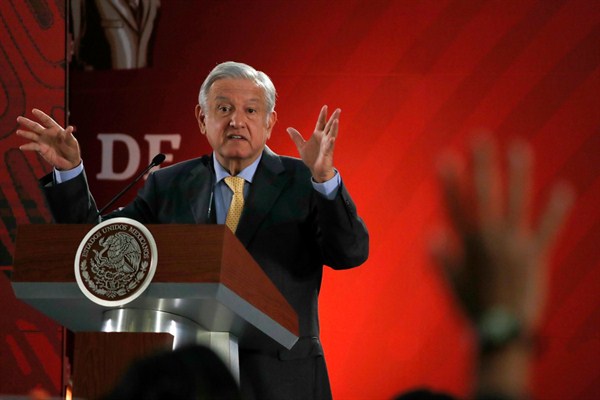MERIDA, Mexico—When Andres Manuel Lopez Obrador was elected president of Mexico last July, his victory was seen as a break with the stagnant and corrupt two-party system that had dominated high-level Mexican politics for nearly 90 years. Most observers expected AMLO—as the veteran leftist is known in Mexico—and his Morena party to shake up Mexican politics through populist policies, such as a rejection of the free-market consensus that had taken hold in Mexico City in recent years.
Domestically, AMLO has indeed been extremely active since taking office, tackling issues as diverse as gas theft and nursery school funding. On foreign policy, however, he’s been much more restrained—a posture that has turned the new president into a target of criticism both at home and abroad.
AMLO was in office for less than two months when large-scale protests broke out in Venezuela in January, while April will mark one year since a major protest movement against President Daniel Ortega began in Nicaragua. Although the crisis in Venezuela is currently more acute, in both cases the situation remains highly unresolved—and also in both cases, AMLO has refused to take a meaningful stance against regimes widely condemned for their authoritarian behavior.

